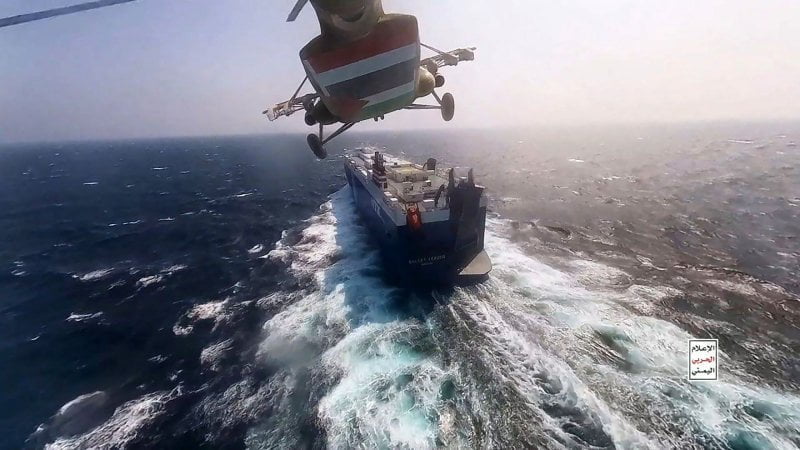
Amid an increase in attacks on international commercial vessels in the Red Sea by Houthi rebels, the Biden administration has blacklisted a complex network of four people and nine companies accused of funding the Iran-backed Yemen-based militant group.
U.S. officials said the network of 13 people and entities are responsible for providing the U.S.-designated Houthi rebels with tens of millions of dollars in foreign currency generated from the sale of Iranian goods.
Those blacklisted are connected to the network of Houthi and Iranian facilitator Sa’id al Jamal, who was first hit with U.S. sanctions in June of 2021, with additional members of his network being sanctioned in February.
The Treasury said that these newly sanctioned individuals and companies serve “an important conduit through which Iranian money reaches the country’s militant partners in Yemen.”
“The Houthis continue to receive funding and support from Iran, and the result is unsurprising: unprovoked attacks on civilian infrastructure and commercial shipping, disrupting maritime security and threatening international commercial trade,” Under Secretary of the Treasury for Terrorism and Financial Intelligence Brian Nelson said in a statement.
Yemen has been called “the world’s worst humanitarian crisis” due to the amount of need that has been created by the roughly decade of war between the Houthi rebels and the internationally internationally recognized government of Yemen, which is backed by the Saudi-led coalition forces.
Since the war between Hamas and Israel in October, the Houthis have attacked civilian infrastructure in Israel and commercial shipping vessels in the Red Sea, raising worries that a second front may erupt in the Middle Eastern conflict.
Last week, three commercial vessels were attacked in the Red Sea, with the U.S. Arleigh Burke-class guided-missile destroyer responding by shooting down three Houthi rebel drones.
ALSO READ Reactions trail as Prince and Dorathy unveils Mercy Eke’s Range Rover sport
The USS Carney was responding to a distress call from the ships and provided assistance, Pentagon officials said after the attack.
John Kirby, the National Security Council coordinator for strategic communication, commented on the increase in attacks during a White House press conference Thursday, describing them as a threat to international commerce and the freedom of navigation.
He said because of these attacks, the departments of State and Defense are seeking to expand the 39-member Combined Maritime Forces, which exists to counter illicit non-state actors in international waters, from pirates to the Houthi rebels.
“Our focus at this time is ensuring that there are sufficient military assets in place to deter these Houthi threats to maritime trade in the Red Sea and in the surrounding waters,” he said, adding that they have already “heard some interest from several key partners that are interested in coming aboard.”
Concerning the sanctions, Kirby said they will cut off those who facilitate such attacks and follow recent U.S. designations that have targeted the militant group and Iran.
“This is an international problem and it demands an International solution, and that is exactly the approach that the Untied states is going to take to it,” he said.












